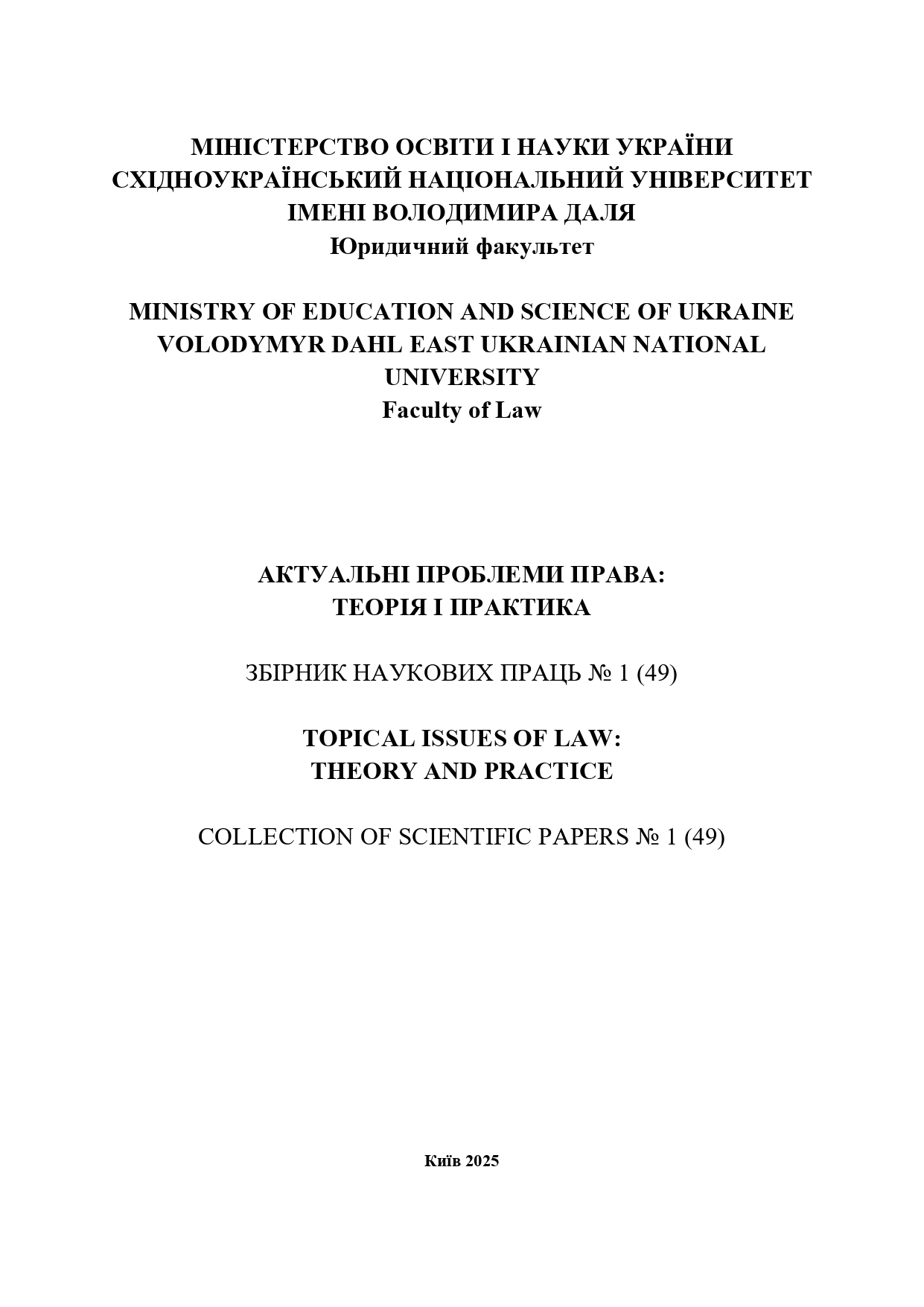LEGAL REGULATION OF RESCUE OPERATIONS AT SEA: ANALYSIS OF CURRENT TRENDS
DOI:
https://doi.org/10.33216/2218-5461/2025-49-1-218-226Abstract
The article offers a comprehensive analysis of
the international legal regulation of maritime rescue
operations. The author examines the core
international conventions that constitute the
normative framework in this area, in particular the
United Nations Convention on the Law of the Sea, the
International Convention on Maritime Search and
Rescue, and the International Convention on Salvage
of 1989. The role of each of these instruments in
establishing an effective mechanism of coordination,
motivation, and accountability among the actors
involved in rescue operations is outlined.
Special attention is given to the obligations of
shipmasters and coastal States in the context of
rendering assistance at sea, as well as the challenges
that arise amid growing migratory flows. In conditions
of a migration crisis, law enforcement encounters
legal conflicts between humanitarian obligations and
the sovereign interests of States, highlighting the need
to improve international legal mechanisms.
The article also addresses the economic and
insurance dimensions of rescue operations as vital
tools for enhancing their efficiency, particularly in
safeguarding property interests and protecting the
marine environment. The author explores the
prospects of introducing advanced technologies, such
as unmanned aerial vehicles and automated systems, which significantly alter the nature of rescue missions while simultaneously raising new legal challenges in the domains of liability, privacy, and the regulation of the legal status of such technologies.
Keywords: maritime safety, maritime law, international maritime conventions, rescue operation, marine insurance.

